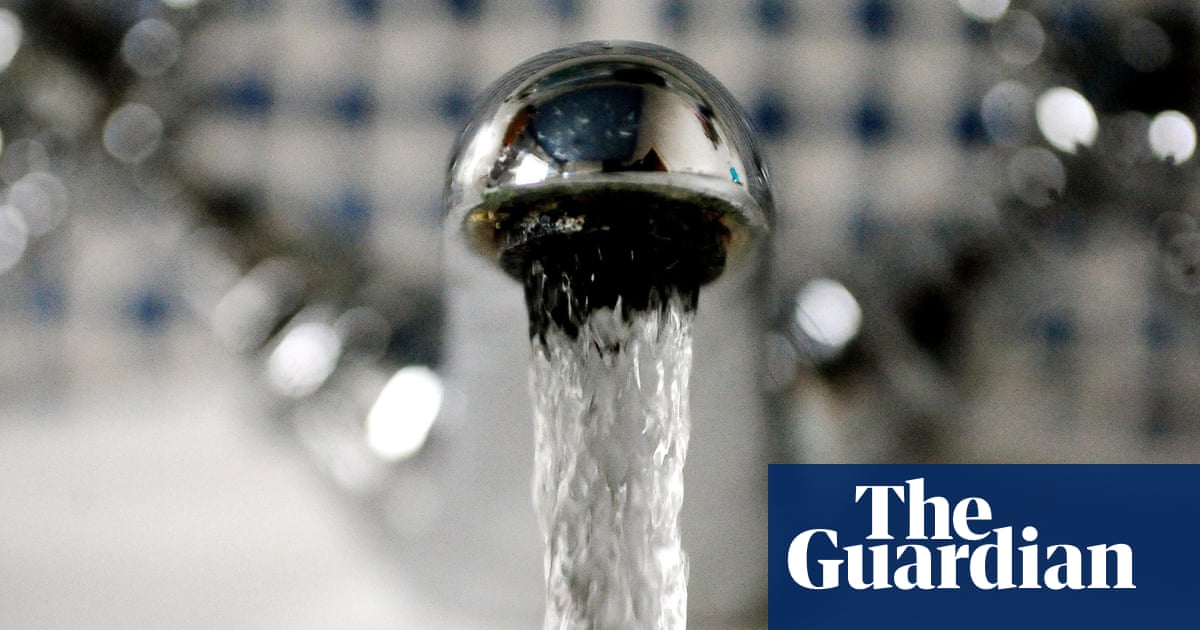
Water bills in England and Wales will rise by an average of £94 over the next five years, under plans set out by the regulator and described by the chancellor as “a bitter pill” for households.
Rachel Reeves said the planned 21% increase to an average of £535 a year reflected “14 years of failure from the Conservatives” amid the sewage pollution scandal and cost of living crisis.
She said the Labour government was “determined to get a grip on the water sector so it delivers for consumers, and so that we stop polluting our beautiful seas and rivers”.
Water companies had asked for bills to go up by even more under plans submitted to the regulator Ofwat. The £94 increase is a third less than the increases requested by the companies, and amounts to a rise in bills of about £19 each year over the period.
However Feargal Sharkey, the water campaigner and former frontman of the Undertones, was critical of Ofwat.
He said: “They are allowing water companies to put up bills by a large amount to pay for infrastructure they should have already paid for with customer bills. Customers are therefore having to pay twice.
“I am now so outraged with the contempt Ofwat is showing to customers that we should be taking to the streets outside parliament to show that we will no longer take their greed, their incompetence and their complete and utter disregard for customers and the environment.”
The planned bill increases were announced after a review by Ofwat, which examined the spending plans of English and Welsh water companies for 2025-30.
Customers of struggling Thames Water will face a 22% increase in their bills over the next five years after the industry regulator limited a larger rise proposed by the company.
Ofwat said Thames would be allowed to increase bills by £99 to £535, £92 less than the company had proposed. Thames had asked the regulator to raise bills by 44% over the next five years.
The biggest bill increases Ofwat allowed were for Southern Water, with a £183 rise to £603, Dŵr Cymru in Wales, which will increase bills by £137 to £603, and Hafren Dyfrdwy, whose bills will be rising by £128 to £524. Southern and Thames will be allowed to add a further £16 and £5 to bills respectively if their plans meet certain criteria with Ofwat.
Bills will rise for customers of all water companies in England and Wales, apart from those of Wessex Water and Sutton and East Surrey Water.
The Liberal Democrats’ environment spokesperson, Tim Farron, said: “Any insulting price hikes by water companies must be blocked. It is a national scandal that these disgraced firms are demanding more money from families and pensioners in a cost of living crisis, all while dumping raw sewage into our rivers.”
Mike Keil, the chief executive of the Consumer Council for Water, said: “Millions of people will feel upset and anxious at the prospect of these water bill rises and question the fairness of them, given some water companies’ track record of failure and poor service.”
Water companies have been criticised for asking customers to pay for a £96bn investment programme to stop raw sewage dumping, build new reservoirs and reduce leaks. Campaigners for clean water argue that customers should not be paying for infrastructure investment that should have already been carried out to comply with companies’ operational permits.
Water companies, including Thames, have faced sustained criticism over leaky pipes, sewage dumping and the extraction of financial dividends.
The government said the environment secretary, Steve Reed, would meet water industry bosses on Thursday to “make clear that under this government water companies will be answerable for their performance”.
Reed has written to them to ask for investment funding to be ringfenced, to put “customers and the environment at the heart of their objectives”, and to strengthen compensation rules when water supplies are interrupted. “We will never look the other way while water companies pump sewage into our rivers, lakes and seas,” he said.
The regulator said companies would invest £10bn to tackle storm overflows, with a target to reduce spills by 44% from levels in 2021. A string of new environmental targets will be introduced, including tasking companies in England to limit spills to 16 incidents a year by 2029.
The price review is seen as crucial for the future of Thames Water, which is creaking under £15.2bn of debt. The company said this week that, after the review, it would approach potential investors this autumn, before Ofwat’s final verdict in December.
Ofwat also said on Thursday it was putting Thames into unprecedented special measures, involving closer scrutiny of the company, which is facing the possible prospect of a temporary nationalisation.












